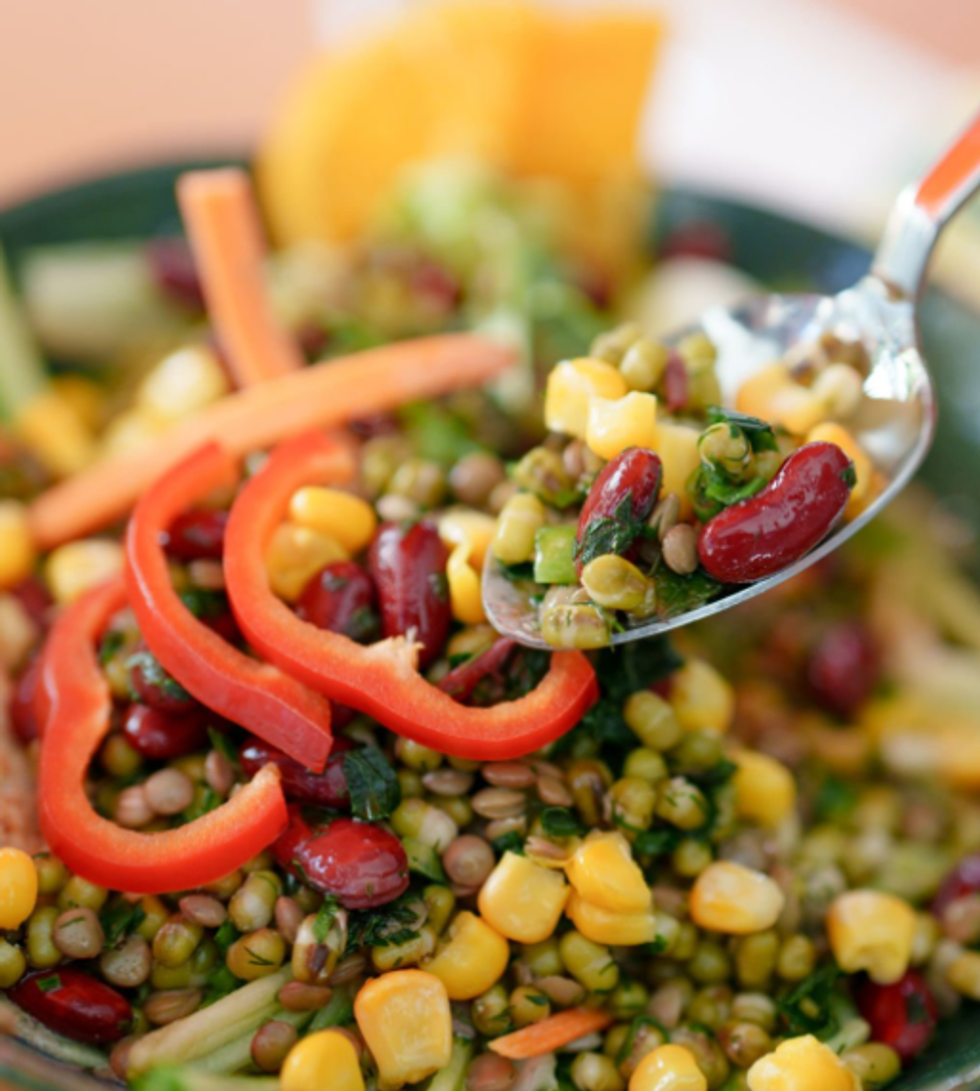Popular diet halves cancer progression and increases life expectancy, suggests study of 30,000 men

Plant-based diet may help people with bowel cancer live longer
|Getty Images

- A plant-based diet may help people with bowel cancer live longer
- A review of four separate studies came to this conclusion
- The diet halved cancer progression in men in another study
Don't Miss
Most Read
Cancer is an indiscriminate killer but new research suggests you can mitigate its worst effects by following a diet rich in plant-based foods such as vegetables, lentils, fruit, nuts and whole grains.
A review published as four separate studies in the International Journal of Cancer (IJC) suggests a plant-based diet, along with an active lifestyle, could potentially improve the overall survival chances of patients with bowel cancer.
Meanwhile another study, published in Jama Network Open, found men with prostate cancer who ate plant-based foods had a 47 percent lower risk of progression compared to those who did not strictly follow this diet.
But the scientists involved in the IJC studies said more research is needed, with better designed trials and larger observational studies, to improve the lifestyle recommendations for cancer survivors.

Men with prostate cancer who ate plant-based foods had a 47 percent lower risk of progression
|Getty Images
Doctor Helen Croker, assistant director of research and policy at World Cancer Research Fund International which supported the review, said: “This comprehensive and rigorous review of the current state of evidence offers useful guidance on some of the diet and lifestyle factors that could improve cancer survival, and potentially help people living with and beyond cancer enjoy longer, healthier lives.
“At the same time, it shows a clear need for more well-designed intervention and cohort studies to support the development of robust recommendations for colorectal (bowel) cancer patients and health professionals.
“As we are seeing an increase of people diagnosed with colorectal cancer at younger ages, it is more important than ever that health advice is based on high-quality research.”
The reviews on the effects of diet and lifestyle on bowel cancer was led by the CUP Global research team at Imperial College London.
In one of the studies, the team analysed data from 40 studies involving 30,000 people looking at the impact of diet on bowel cancer survival.
They found overall evidence here to be “limited” but added that “consumption of a healthy diet, including diet patterns with plant-based foods, and avoidance of sugary drinks may be associated with improved overall survival after a colorectal cancer diagnosis”.
Another review, which involved looking at data from 16 studies with 82,000 people, suggests physical activity such as cycling, gardening, housework, sports, or walking, may be associated with longer survival for patients with bowel cancer.
The quality of the evidence was independently interpreted and graded by the CUP Global Expert Committee on Cancer Survivorship and Expert Panel.
LATEST DEVELOPMENTS

More research is needed, with better designed trials and larger observational studies
| Getty ImagesDoctor Doris Chan, senior research fellow in nutrition at Imperial College London and Dr Kostas Tsilidis, reader in cancer epidemiology and prevention at Imperial College London, said: “We analysed several hundred studies, and although most had limitations and potential biases, we are confident that it represents the best and most up-to-date body of evidence that can assist people living with or beyond cancer in making evidence-based decisions on lifestyle changes that can improve their wellbeing.”
Meanwhile the Jama study, which involved more than 2,000 men, showed those who had the highest scores on the plant-based diet index, which is a measure of adherence to a plant-based diet in general, had a 47 percent lower risk of progression compared to men who had low scores.
The authors wrote: “These findings suggest that consuming a primarily plant-based diet may be associated with better prostate cancer–specific health outcomes among men with prostate cancer.”
Editor's take
The new research is encouraging and is consistent with previous studies linking plant-based diets to a reduced risk of heart disease, type 2 diabetes, hypertension, some cancers, and obesity.
It also makes sense given what we know about the health risks associated with eating processed and red meat.
However, it's worth reiterating what the researchers said: more research is needed before we can draw definitive conclusions.
And remember, there's no one diet that can guarantee that you won’t get cancer. But eating a healthy, balanced diet can certainly help reduce the risk.










